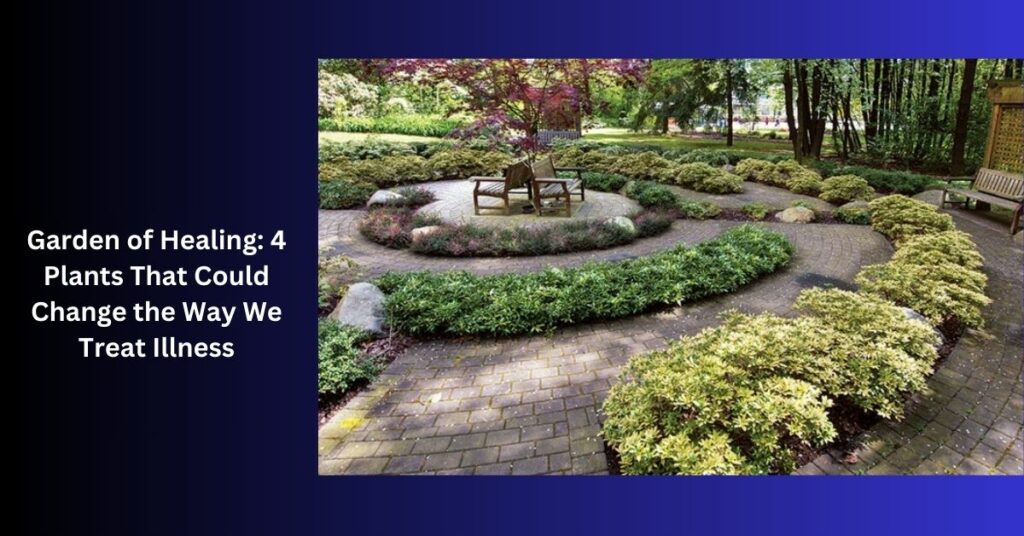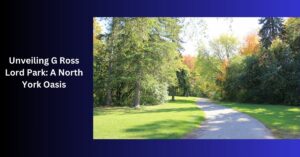Garden of Healing: 4 Plants That Could Change the Way We Treat Illness

The age-old wisdom of using plants for healing is blossoming anew in our modern world. In this era of advanced medical technologies, there’s a growing recognition of the potent healing powers held within nature’s own creations.
Welcome to the “Garden of Healing,” a metaphorical space where nature’s bounty offers promising solutions to contemporary health challenges.
In this exploration, we will delve into four remarkable plants that are not just common flora but potential game-changers in the way we approach illness and healing.
It’s a journey back to our roots, where natural remedies offer a harmonious balance with modern medicine. These plants, steeped in history and folklore, are now the subjects of rigorous scientific scrutiny.
They represent a merging of worlds – where ancient remedies meet the rigor of modern science. This is not just a return to the past but an informed and forward-looking embrace of nature’s healing potential.
Turmeric (Curcuma longa): The Golden Healer
Turmeric, a vibrant yellow spice, has graced the annals of traditional medicine for centuries, particularly in Asia. It’s not just a culinary staple but also a powerhouse of therapeutic properties.
Recent studies have highlighted turmeric’s anti-inflammatory and antioxidant capabilities. These properties make it a potential ally in combating chronic conditions like arthritis and even neurodegenerative diseases like Alzheimer’s.
Imagine a spice from your kitchen shelf being part of the solution to some of the most challenging health issues today.
The active compound in turmeric, curcumin, has been the focus of numerous clinical trials. It’s not just about reducing inflammation; it’s about understanding how these natural compounds can provide holistic healing.
The impact of turmeric on overall wellness, including mental health, is also being explored, broadening its potential in the medical field.
Its accessibility and ease of use make it a popular choice for those seeking natural health solutions. Learn more about turmeric’s healing properties.
Lavender (Lavandula): The Essence of Calm
The soothing aroma of Lavender has comforted many through the ages. This plant is more than just a pleasant scent; it’s a reservoir of calming properties.
Research supports its use in treating anxiety and sleep disorders, providing a natural alternative to pharmaceuticals.
However, its benefits may extend further, offering relief in post-surgical recovery and chronic pain management.
Lavender’s gentle yet effective healing properties remind us that sometimes, the best medicine doesn’t come in a pill.
The essential oils derived from lavender are not only used for relaxation but are also being studied for their antiseptic and anti-inflammatory properties.
This versatility makes lavender a key player in both aromatherapy and more traditional forms of herbal medicine.
Its application in reducing stress and promoting mental well-being can’t be overstated, making it a staple in holistic health practices.
Lavender’s potential in skincare, treating minor burns and wounds, further showcases its multifaceted healing abilities. Explore the calming effects of Lavender.
Gingko Biloba: The Ancient Brain Booster
Gingko Biloba, revered for its longevity and resilience, is equally esteemed in the world of herbal medicine. Known for enhancing cognitive function, it’s often associated with dementia prevention.
Modern studies confirm its potential in improving memory and concentration, making it particularly relevant in an aging population.
Its role in cardiovascular health is also being explored, as it may improve blood circulation and reduce the risk of heart-related diseases.
Gingko Biloba stands as a testament to the wisdom embedded in ancient remedies, still relevant in today’s fast-paced world.
The antioxidants in Gingko Biloba are believed to combat the effects of free radicals, contributing to its anti-aging properties.
It’s not just about memory; it’s about protecting the brain from oxidative stress. The potential of Gingko Biloba in treating mood disorders and alleviating depression symptoms opens new avenues for mental health treatment.
Its ability to enhance circulation also makes it a candidate for treating certain types of vision and hearing loss. Discover more about Gingko Biloba.
Medical Marijuana (Cannabis): A Controversial Cure
Medical marijuana has been a topic of debate, but it’s impossible to ignore its therapeutic potential. It’s proven effective in pain management, controlling epileptic seizures, and offering relief for multiple sclerosis patients.
The cannabinoids, like THC and CBD, are key to its effectiveness, interacting with the body in ways we’re just beginning to understand. As research continues, the scope of medical marijuana’s applicability only broadens, challenging preconceived notions about this controversial plant.
The evolving understanding of medical marijuana is paving the way for more personalized medicine, where treatments are tailored to individual needs.
The impact of cannabis on mental health, particularly in treating conditions like PTSD, is a growing area of study. It’s not just about managing symptoms; it’s about exploring new paths to healing.
The potential of cannabis in reducing dependency on opioids for pain management is another area garnering significant attention.
As legal barriers continue to fall, the medical community is gaining a better understanding of how to utilize this plant responsibly and effectively.
In Alabama, for example, the legal landscape surrounding medical marijuana is strict but evolving. For those seeking its therapeutic benefits, understanding the state’s laws is crucial.
Obtaining a medical marijuana card in Alabama involves navigating legal and medical channels, ensuring that patients have safe and regulated access.
This process, though complex, underscores the importance of responsible usage and adherence to legal guidelines.
The system is designed to protect patients and ensure that medical cannabis is used responsibly and effectively.
Alabama’s cautious approach to medical marijuana is reflective of a broader national trend towards careful, regulated acceptance.
For patients, navigating the legal requirements is a small but necessary step toward accessing a potentially life-changing treatment.
The state’s medical marijuana program is a significant development, indicating a shift in perspective toward the therapeutic value of cannabis.
This change is not just about legality; it’s about acknowledging the plant’s medical potential and integrating it into comprehensive patient care. Learn about Alabama’s medical marijuana regulations.
Conclusion: A Future Where Nature and Science Coexist
These four plants from our “Garden of Healing” represent a bridge between traditional knowledge and modern science. They’re not just botanical wonders but symbols of a more holistic approach to health.
As we continue to research and integrate plant-based treatments, the future of healthcare looks increasingly diverse and promising.
Embracing these natural healers, we step towards a future where nature’s wisdom is not just acknowledged but integrated into the very fabric of medical practice.
The exploration of these plants is more than a scientific endeavor; it’s a journey toward understanding the full spectrum of healing possibilities. It’s a call to balance, to blend the best of both worlds for the betterment of human health.
Additional Resources
For a more comprehensive understanding of herbal medicine and the latest research in the field, consider exploring the following resources. They offer a range of scientific, educational, and practical information:
· The Herbal Academy: This academy provides online education and resources for herbalists of all skill levels. Their blog and online courses are rich with information on herbal remedies, plant identification, and the tradition of herbalism.
· Mountain Rose Herbs: Not only a supplier of high-quality organic herbs, but this site also offers a vast amount of educational material, including herbal monographs, recipes, and an herbal blog. It’s a great resource for those looking to learn more about the practical use of herbs.
· The American Botanical Council: An independent, nonprofit organization providing education in the field of herbal medicine. This site includes access to the HerbalGram journal, extensive herbal databases, and numerous articles and books on the subject.






